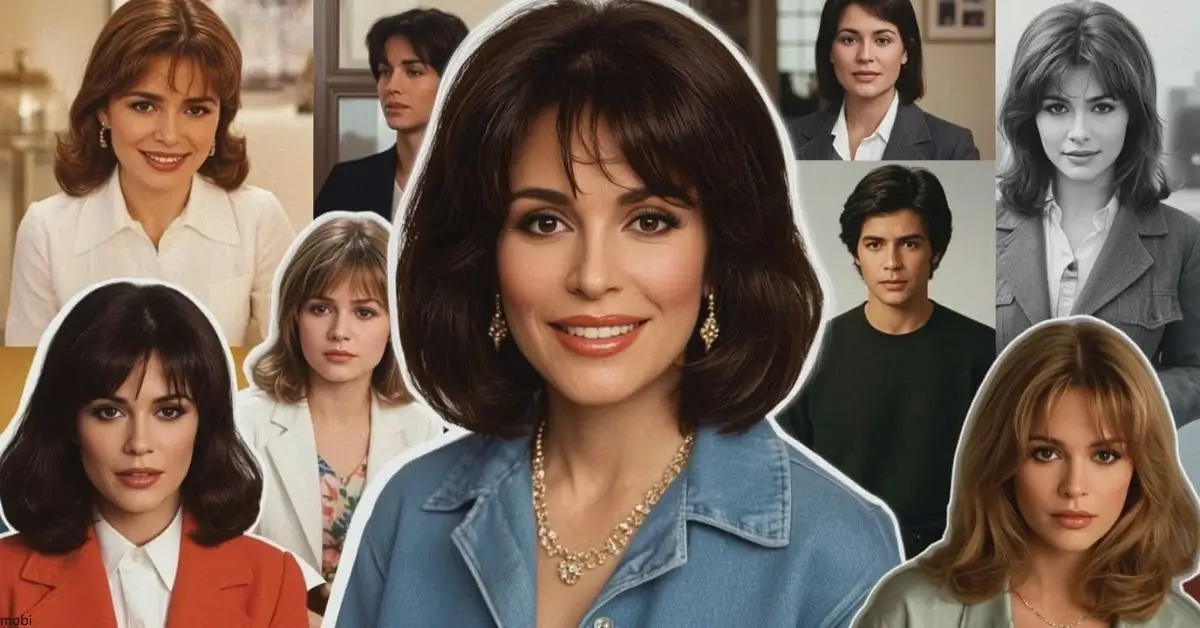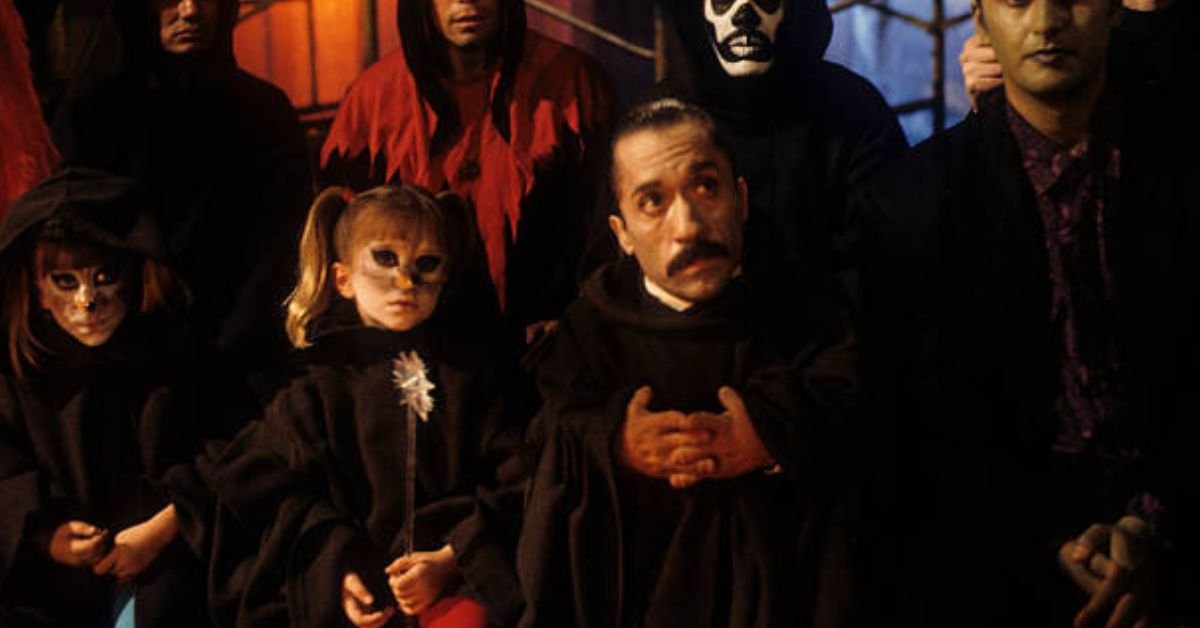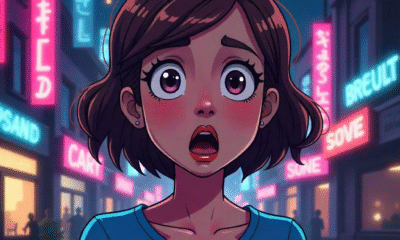ENTERTAINMENT
Top Marlo Thomas Movies and TV Shows You Should Watch

If you grew up in the 1960s or 1970s, chances are you know Marlo Thomas as the charming and trailblazing star of That Girl. But her impact on Hollywood goes far beyond one sitcom. From her impressive list of movies and TV shows to her ongoing influence in entertainment and philanthropy, Thomas remains a beloved figure for fans of classic television, students of film, and pop culture enthusiasts alike.This article explores the highlights of Marlo Thomas movies and TV shows, her most celebrated roles, guest appearances, and her enduring legacy as both an actress and humanitarian.
Marlo Thomas: A Trailblazing Career in Entertainment
Early Beginnings and Breakthrough
Marlo Thomas, born Margaret Julia Thomas in 1937, entered show business as the daughter of comedian Danny Thomas. After small guest roles on series like Bonanza and The Joey Bishop Show, she landed her breakout part as Ann Marie in That Girl, a sitcom that ran from 1966–1971.
- That Girl Marlo Thomas became one of the first shows to depict an independent single woman pursuing her career in New York City—years before The Mary Tyler Moore Show.
- The show not only boosted her acting career but also reshaped television’s portrayal of women.
Marlo Thomas Movies and TV Shows: A Comprehensive Look
Most Popular Marlo Thomas TV Series
- That Girl (1966–1971) – Her most iconic role as aspiring actress Ann Marie.
- Friends (1996) – Guest appearance as Rachel Green’s mother, Sandra Green.
- Law & Order: Special Victims Unit (2014–2020) – Recurring guest role as Judge Mary Clark.
Notable Marlo Thomas Movies
- Jenny (1970) – A romantic drama where she starred opposite Alan Alda.
- Thieves (1977) – A film adaptation of her Broadway play.
- In the Spirit (1990) – A comedy she co-produced and starred in.
- Deuce Bigalow: Male Gigolo (1999) – Played a humorous supporting role.
- Hallmark Movies & Specials – Frequently appeared in family-friendly programming, adding to her wide appeal.
Marlo Thomas Guest Appearances and Specials
Over the decades, Thomas graced numerous television specials and guest spots, including:
- The Dick Van Dyke Show
- The Brady Bunch Hour
- The Tonight Show Starring Johnny Carson
- Holiday-themed Hallmark movies
These appearances showcased her versatility, from comedy to drama, while keeping her connected with multiple generations of fans.
Awards and Recognition
Did Marlo Thomas Win Awards for Her Acting?
Yes, Thomas has received multiple accolades for her filmography and advocacy:
- Emmy Awards – Four wins for acting and producing.
- Golden Globe Nomination – For That Girl.
- Peabody Award – For producing Free to Be… You and Me.
- Presidential Medal of Freedom (2014) – Honoring her humanitarian work with St. Jude Children’s Research Hospital.
Her awards reflect both her artistic talent and commitment to social change.
Where to Watch Marlo Thomas Movies and TV Shows
For modern viewers asking, Where can I watch Marlo Thomas movies online?, here are some options:
| Platform | Available Content |
|---|---|
| Amazon Prime Video | Rentals of classic Marlo Thomas movies like Jenny and Thieves |
| HBO Max / Max | Occasional reruns of Friends featuring her guest role |
| Hallmark Channel | Holiday and family specials starring Marlo Thomas |
| Paramount+ / Classic TV Apps | That Girl episodes for streaming |
Marlo Thomas Collaborations with Phil Donahue
Marlo Thomas has been married to talk show host Phil Donahue since 1980. Together, they co-authored the bestselling book What Makes a Marriage Last. They also collaborated on numerous interviews and specials, blending entertainment with thoughtful discussions on relationships and social issues.
Marlo Thomas’ Legacy Beyond Hollywood
In addition to her acting career, Thomas is a celebrated philanthropist:
- National Outreach Director for St. Jude’s Children’s Research Hospital, founded by her father Danny Thomas.
- Advocate for children’s health, women’s rights, and education.
- Producer of Free to Be… You and Me, a groundbreaking children’s special promoting gender equality and individuality.
This combination of artistic and humanitarian work secures her place as one of the most influential figures in both Hollywood and charitable activism.
FAQ’s
What are the most popular Marlo Thomas movies and TV shows?
Her most famous TV series is That Girl, while films like Jenny and Thieves stand out among her movies.
Which TV series made Marlo Thomas famous?
She rose to fame in the 1960s sitcom That Girl.
Did Marlo Thomas win awards for her acting?
Yes, she won multiple Emmys, a Golden Globe nomination, and the Peabody Award.
Where can I watch Marlo Thomas movies online?
Fans can stream her work on Amazon Prime, Hallmark Channel, and Paramount+.
Is That Girl with Marlo Thomas streaming?
Yes, the show is available on various classic TV streaming platforms.
What is Marlo Thomas best known for in television?
Her role as Ann Marie in That Girl remains her most iconic television achievement.
Conclusion
Marlo Thomas carved out a unique place in entertainment history with her rich list of movies and TV shows, groundbreaking performances, and enduring philanthropic work. Whether you know her as Ann Marie from That Girl, Rachel’s mom on Friends, or as a champion for children’s health, her influence continues to resonate across generations.
For fans of classic Hollywood and TV history, revisiting Marlo Thomas movies and TV shows is more than nostalgia—it’s an opportunity to appreciate a true pioneer in entertainment.
ENTERTAINMENT
Birthday Ideas That Will Make You Feel Like a Kid Again

Birthday parties can get a bit dull. That’s why we’re here to shake things up with some out-of-the-box birthday ideas that’ll make your celebration stand out. From themed parties to adventure-filled escapades, we’ve curated a list of the most innovative birthday ideas to make your day truly special.
Themed Birthday Ideas to Transport You to Another World
Themed parties are an excellent way to create an immersive experience that’ll transport your guests to another world. Imagine being surrounded by the magic of a fairy tale or the excitement of a futuristic city. Some popular themed birthday ideas include:
- A masquerade ball with elaborate masks and Venetian-inspired decor
- A retro arcade party with classic video games and nostalgic snacks
- A tropical island getaway with palm trees, floral arrangements, and refreshing cocktails
What’s your favorite theme? The possibilities are endless, and the right theme can make your birthday party an unforgettable experience.
Adventure-Filled Birthday Ideas to Get Your Heart Racing
If you’re looking for birthday ideas that’ll get your adrenaline pumping, we’ve got just the thing. From skydiving to escape rooms, these adventure-filled activities are sure to create lifelong memories.
Outdoor Birthday Ideas to Connect with Nature
For those who love the great outdoors, we’ve got some fantastic birthday ideas that’ll help you connect with nature. Imagine spending your special day surrounded by breathtaking landscapes, fresh air, and the sounds of wildlife.
- A camping trip with friends and family, complete with campfires, stargazing, and outdoor games
- A hiking or kayaking adventure that’ll challenge you and push you to new heights
- A scenic hot air balloon ride with panoramic views and a champagne toast
“I did a hot air balloon ride for my 30th birthday, and it was truly the most surreal experience of my life. The views were breathtaking, and the sense of adventure was exhilarating!”

Creative Birthday Ideas to Showcase Your Personality
Your birthday is the perfect opportunity to showcase your personality and style. Whether you’re a foodie, an art lover, or a thrill-seeker, we’ve got birthday ideas that’ll help you express yourself.
DIY Birthday Ideas to Get Crafty
For those who love to get crafty, DIY birthday ideas are a great way to add a personal touch to your celebration. From handmade decorations to customized party favors, the possibilities are endless.
- Create a photo booth with props and customized backdrops
- Make your own birthday cake or cupcakes with unique flavors and designs
- Plan a DIY craft party with friends, where you can make your own decorations and gifts
FAQs
Q: What are some unique birthday ideas for adults?
A: Some unique birthday ideas for adults include a wine tasting tour, a cooking class, or a weekend getaway to a nearby city. You could also consider a themed party, like a murder mystery or a speakeasy night.
Q: How can I make my birthday party more memorable?
A: To make your birthday party more memorable, consider adding personal touches, like customized decorations, a photo booth, or a special birthday cake. You could also plan some fun activities, like games, karaoke, or a scavenger hunt.
Q: What are some birthday ideas for a large group?
A: For a large group, consider renting a private room or venue, like a restaurant, bar, or event space. You could also plan a group outing, like a sporting event, a concert, or a fun activity, like laser tag or bowling.
Q: How can I plan a birthday party on a budget?
A: To plan a birthday party on a budget, consider having a potluck, where guests bring their own food and drinks. You could also DIY decorations and party favors, or opt for a low-key celebration, like a backyard BBQ or a game night.
Conclusion
Birthday ideas, we hope you’re feeling inspired to create an unforgettable celebration. Whether you’re a thrill-seeker, a foodie, or a crafty person, there’s something on this list for everyone.
ENTERTAINMENT
Halloween Movie Marathon: The Best Films to Watch This Season

Best Halloween movies, you can’t go wrong with the classics. Films like “Halloween” (1978), “The Exorcist” (1973), and “A Nightmare on Elm Street” (1984) are horror staples that have stood the test of time. These movies have become synonymous with Halloween and continue to terrify audiences to this day.
Modern Halloween Movies
While classic horror movies are always a great choice, modern best Halloween movies are just as thrilling. Films like “Get Out” (2017), “A Quiet Place” (2018), and “Hereditary” (2018) have taken the horror genre by storm, offering fresh perspectives and new scares.
Family-Friendly Halloween Movies
Not everyone wants to watch a blood-curdling horror movie on Halloween. For families with younger kids, there are plenty of best Halloween movies that are fun and spooky without being too scary. Films like “Hocus Pocus” (1993), “It’s the Great Pumpkin, Charlie Brown” (1966), and “Monster House” (2006) are great options for a family movie night.
“I love watching Halloween movies with my kids. We always have a blast watching ‘Hocus Pocus’ together – it’s become a family tradition!”

Horror Subgenres
When it comes to best Halloween movies, there are many different subgenres to explore. From slasher films to supernatural horror, there’s something for every type of horror fan. Some popular subgenres include:
- Slasher films: Movies like “Halloween” and “A Nightmare on Elm Street” are classic examples of slasher films.
- Supernatural horror: Films like “The Conjuring” (2013) and “The Amityville Horror” (1979) are great examples of supernatural horror.
Frequently Asked Questions
Q: What are the best Halloween movies for kids?
A: For kids, some of the best Halloween movies include “Hocus Pocus”, “It’s the Great Pumpkin, Charlie Brown”, and “Monster House”. These films are fun and spooky without being too scary.
Q: What are the scariest Halloween movies?
A: If you’re looking for a scare, some of the best Halloween movies include “The Exorcist”, “The Shining” (1980), and “The Texas Chain Saw Massacre” (1974). These films are horror classics that are sure to terrify.
Q: Can I watch Halloween movies with my family?
A: Yes, there are many best Halloween movies that are suitable for families. You can choose films that are fun and spooky without being too scary.
Q: How can I make Halloween movie night more fun?
A: To make Halloween movie night more fun, you can create a cozy atmosphere with blankets, snacks, and dim lighting. You can also make it a themed night with costumes and decorations.
Conclusion
Best Halloween movies are a great way to get into the spooky spirit. Whether you’re a horror fan or just looking for a fun family movie night, there’s something for everyone.
ENTERTAINMENT
Allure of Marsala Wine: Unveiling its Rich History and Versatility

Marsala wine originated in the 18th century in Sicily, Italy, where it was produced as a fortified wine to withstand the long sea journeys to England. The wine’s popularity grew, and it became a favorite among the British aristocracy. Today, marsala wine is enjoyed worldwide, both as a drink and as an ingredient in various recipes.
Types of Marsala Wine
Not all marsala wines are created equal. The type of marsala wine you choose depends on your personal taste preferences and the intended use. The main categories are:
- Fine: Aged for at least one year, fine marsala wine is a great all-purpose choice for cooking and drinking.
- Superiore: With a minimum aging period of two years, superiore marsala wine offers a more complex flavor profile.
- Superiore Riserva: Aged for at least four years, superiore riserva marsala wine is a premium product with a rich, intense flavor.
One chef raved about using marsala wine in their signature dish: “I add a splash of marsala wine to my risotto, and it elevates the entire flavor profile – it’s a game-changer!”
Cooking with Marsala Wine
Marsala wine is a versatile ingredient that can add depth and complexity to a variety of dishes. Some popular uses include:
- Risottos and pasta sauces: Marsala wine pairs beautifully with creamy sauces and rich pasta dishes.
- Meat and poultry: Use marsala wine to marinate or braise meat and poultry for added flavor.
- Desserts: Marsala wine can be used to make sweet treats like zabaglione or tiramisu.

Tips for Using Marsala Wine in Cooking
When cooking with marsala wine, keep the following tips in mind:
- Start with a small amount: Marsala wine can be potent, so begin with a small amount and adjust to taste.
- Choose the right type: Select a marsala wine that suits your recipe – fine for everyday cooking, superiore for more complex dishes.
- Don’t forget to reduce: Reducing marsala wine concentrates its flavors, making it a great addition to sauces and braising liquids.
Marsala Wine and Food Pairing
Marsala wine is not just for cooking; it’s also a great drink to enjoy on its own or paired with food. Some popular pairing options include:
- Cheese: Marsala wine pairs well with a variety of cheeses, from creamy brie to tangy parmesan.
- Chocolate: The sweetness of chocolate complements the rich, complex flavors of marsala wine.
- Nuts and fruit: Enjoy marsala wine with a selection of nuts and dried fruit for a satisfying snack.
Frequently Asked Questions
Q: What is the difference between marsala wine and other fortified wines?
A: Marsala wine is made from specific grape varieties and produced using a unique process, giving it a distinct flavor profile compared to other fortified wines.
Q: Can I substitute marsala wine with other types of wine in recipes?
A: While you can substitute marsala wine with other wines, it may alter the flavor profile of your dish. Marsala wine’s unique characteristics make it a great addition to many recipes.
Q: How should I store marsala wine?
A: Store marsala wine in a cool, dark place, away from direct sunlight and heat sources. Once opened, marsala wine can be stored in the refrigerator to slow down oxidation.
Q: Is marsala wine suitable for vegans?
A: Some marsala wines may use animal-derived products in the fining process. Look for vegan-friendly marsala wine options or check with the producer to confirm.
Conclusion
Marsala wine is a versatile and delicious addition to any kitchen or wine collection. Whether you’re a seasoned chef or a wine enthusiast, marsala wine is sure to delight.
-

 BLOG7 months ago
BLOG7 months agoShocking Gasp GIFs – Top 9 Picks
-

 BLOG5 months ago
BLOG5 months agoIs Recurbate Safe for Users or a Hidden Risk?
-

 ENTERTAINMENT6 months ago
ENTERTAINMENT6 months agoTop Uwufufu Best Songs for Playlists and Parties
-

 BUSINESS8 months ago
BUSINESS8 months agoBudget Connect: The Smartest Business Phone Service for Less
-

 ENTERTAINMENT6 months ago
ENTERTAINMENT6 months agoPeter Thiel Email: Safe and Verified Contact Methods
-

 TECH8 months ago
TECH8 months agoQuick Guide: How to Easily Reset Your Acer Laptop
-

 BLOG8 months ago
BLOG8 months agoMark Spaeny: Tailoring Success and Raising a Star
-

 ENTERTAINMENT7 months ago
ENTERTAINMENT7 months agoTwitter Rate Limit Exceeded: What It Means and How to Fix It Fast
